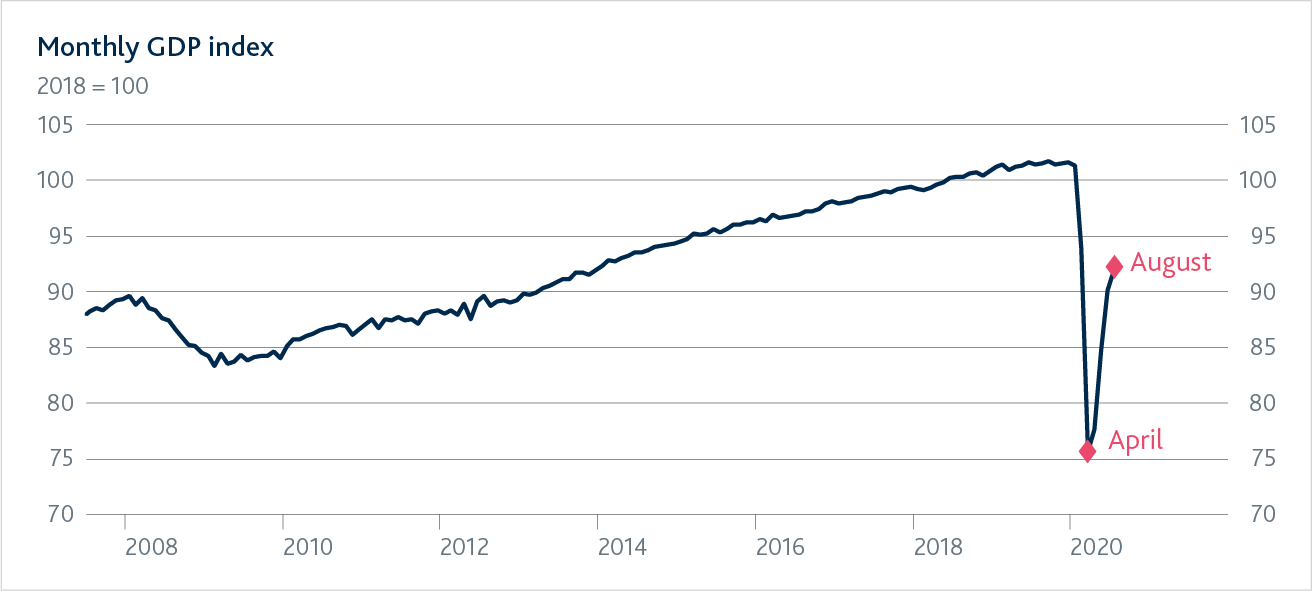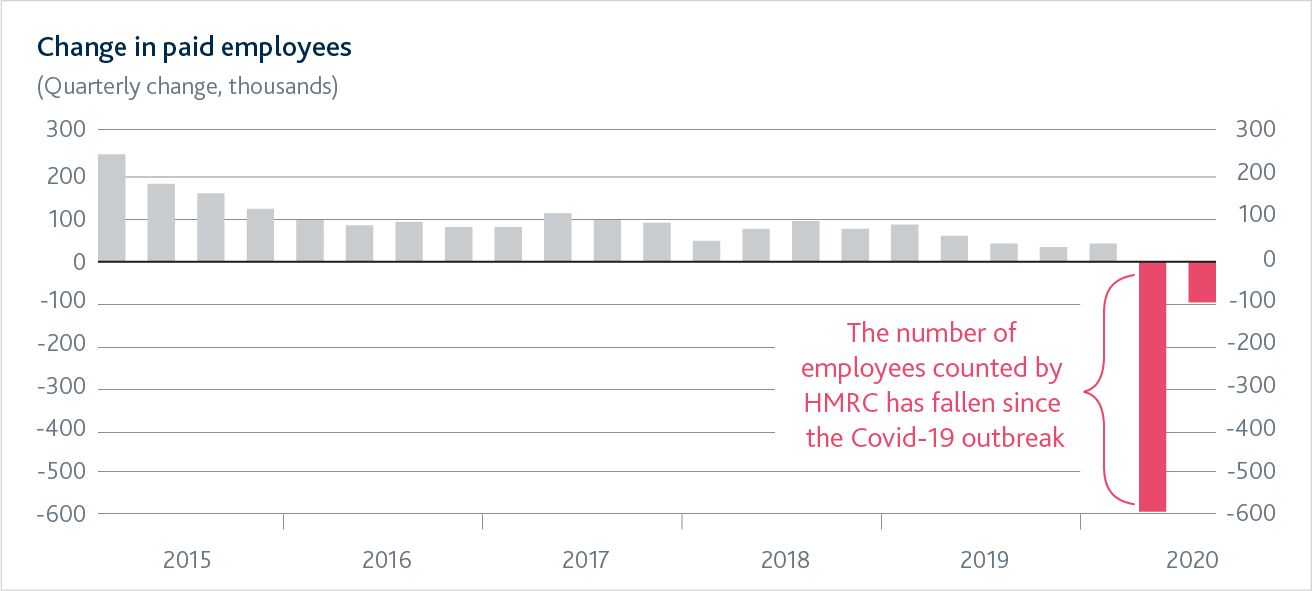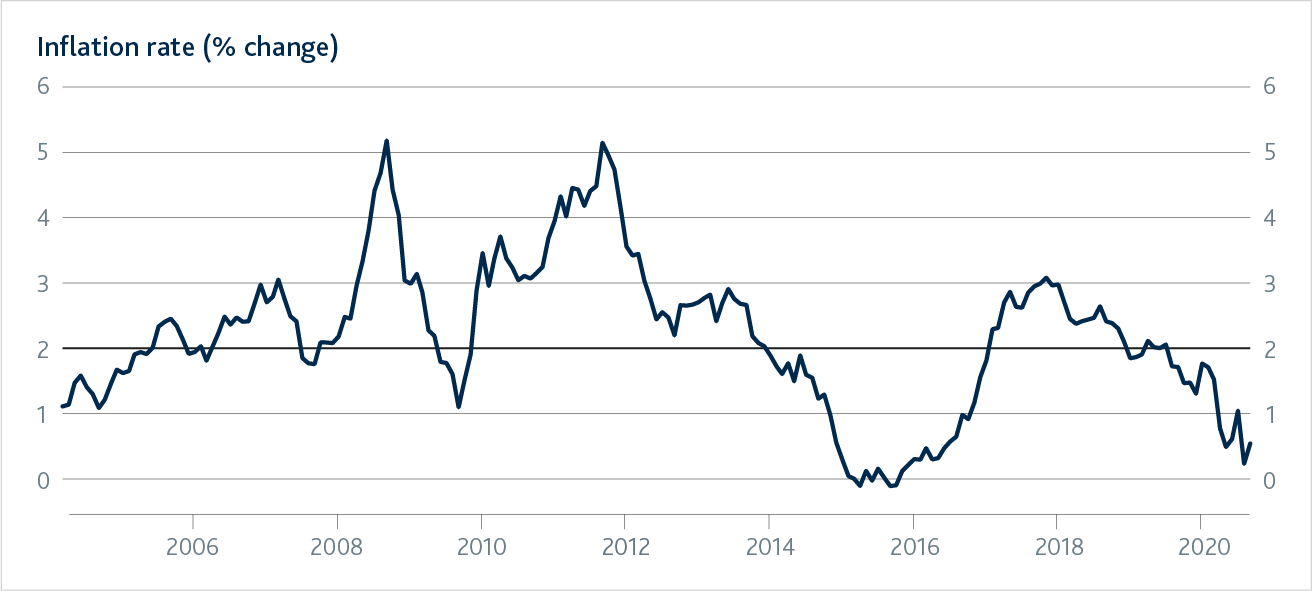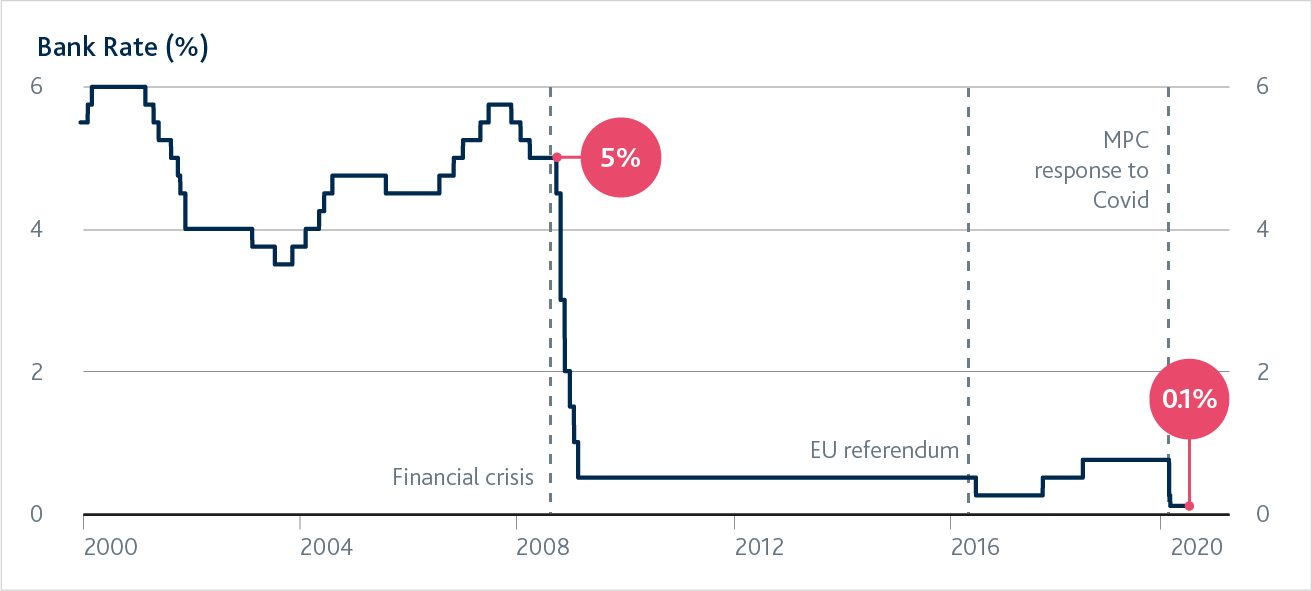Covid continues to hit jobs, incomes and spending in the UK. It has put a big strain on UK businesses’ cash flow, and is threatening the livelihoods of many people.
Our role is to ensure (the pace of price rises) returns to our 2% target sustainably. Low and stable inflation supports jobs and growth and helps people plan for the future.
In response to the spread of Covid, we put in place a package of measures that will help households and businesses.
This year, we have already cut and are supporting the UK economy through £300 billion of quantitative easing. This mainly involves us buying large quantities of government bonds. This helps to keep the interest rates on mortgages and business loans low.
Spending in the economy remains well below normal levels. The rapid rise in cases of Covid and the recent measures taken to contain the virus will reduce spending further. Inflation is well below our target.
We have kept our interest rate at 0.1%, and announced a further £150 billion of quantitative easing.
We stand ready to take further actions if necessary to help the economy recover and ensure that inflation returns to our 2% target.
Covid continues to hit jobs, incomes and spending…
During lockdown, many businesses have been unable to produce or sell their goods and services.
Many households had less money coming in, and some people lost their jobs.
As restrictions eased, production and spending began to pick up.
But the rapid rise in cases of Covid and the measures put in place to contain its spread will reduce spending.
There are risks that jobs and incomes will be lower than they were before Covid for some time.
That is why we have been taking action to support the UK economy.

…and has pushed inflation below our target
On average, the prices of the things we typically buy increased by 0.5% over the twelve months to September.
That is below our 2% target.
The main factor that has pulled inflation down is the spread of Covid.
This has led to lower oil and gas prices, which has reduced and petrol prices.
Slower growth in the UK economy has also probably reduced inflation, because when people are not spending as much, firms tend to increase their prices by less.

We are keeping interest rates low...
Since Covid spread, we have put in place a package of measures to help households and businesses.
We have cut interest rates to 0.1%.
Lower interest rates mean cheaper loans for businesses and households. That reduces the costs they face, and encourages companies to maintain or increase employment and invest.
To encourage banks and building societies to lower their interest rates we are offering them long-term funding at very low rates.
We are also supporting the UK economy through quantitative easing. This helps to keep the interest rates on mortgages and business loans low.

…to support the economy and return inflation to our target
We are working to help the economy recover.
The actions we have taken should increase spending, which will help push inflation back to our 2% target.
Whatever the future brings, we will do all we can to support UK households and businesses through this difficult time.

Press conference
A segment of this video has been edited to ensure maximum audio quality, due to interference on the line.




